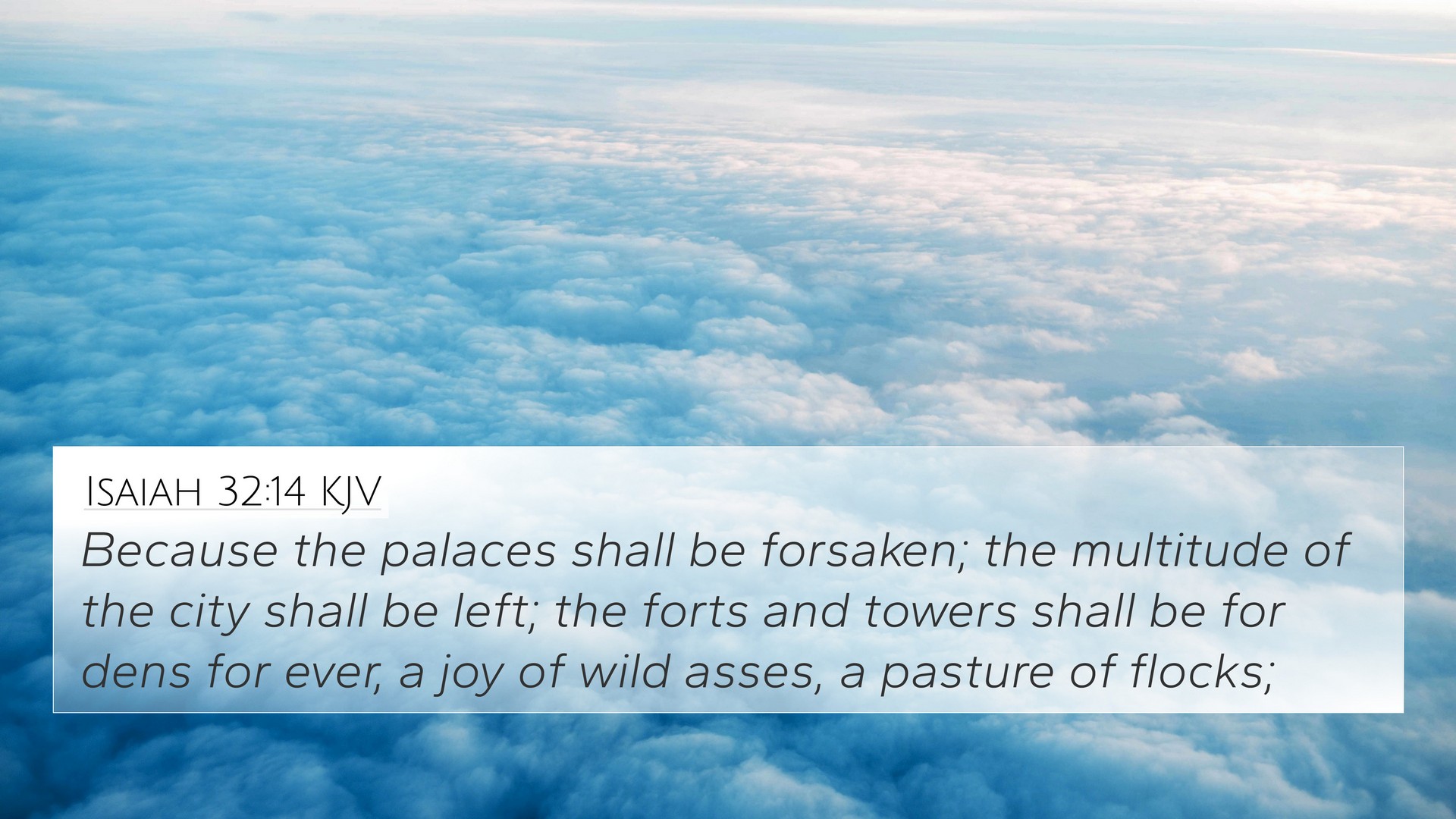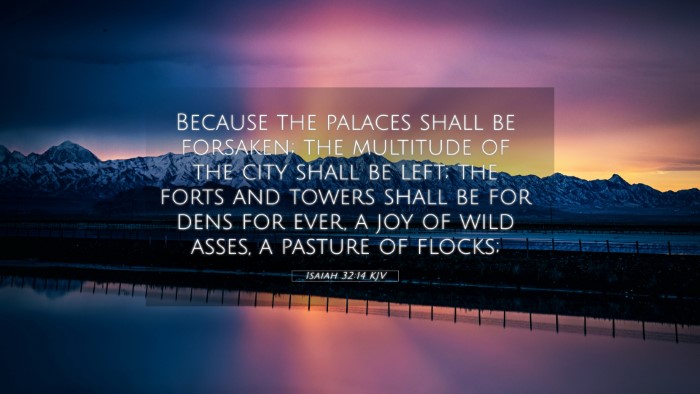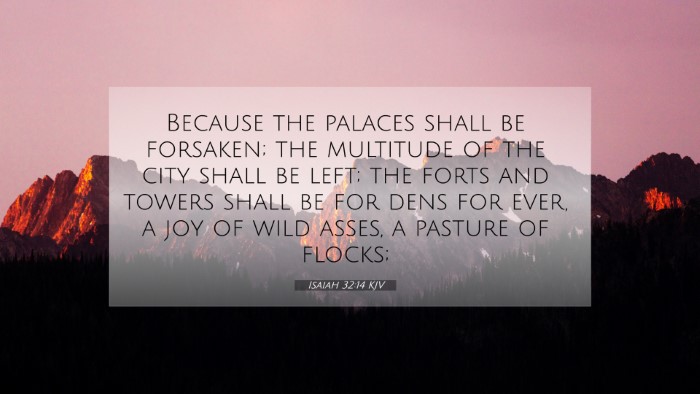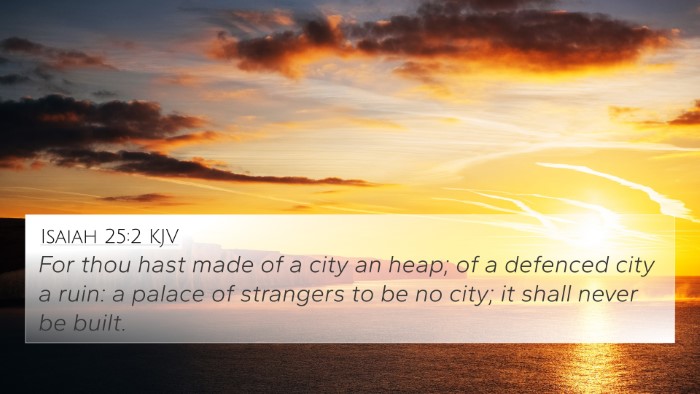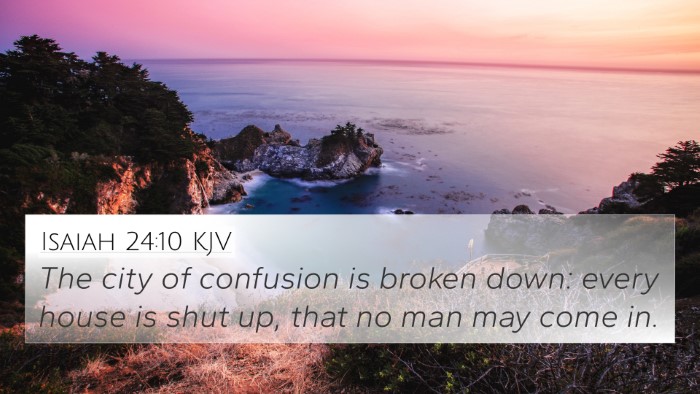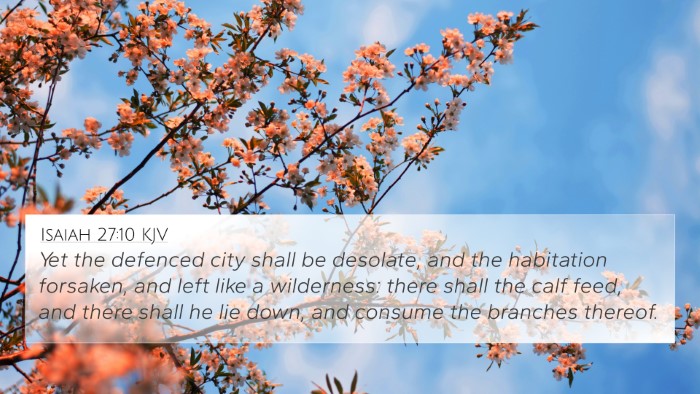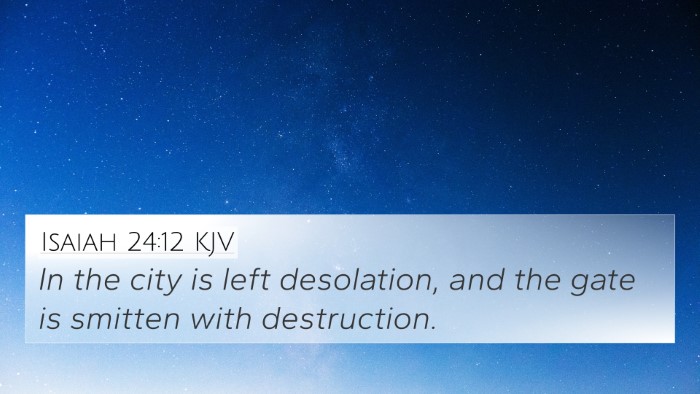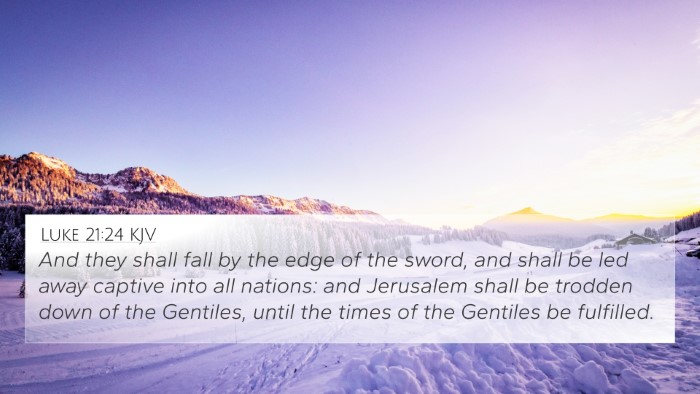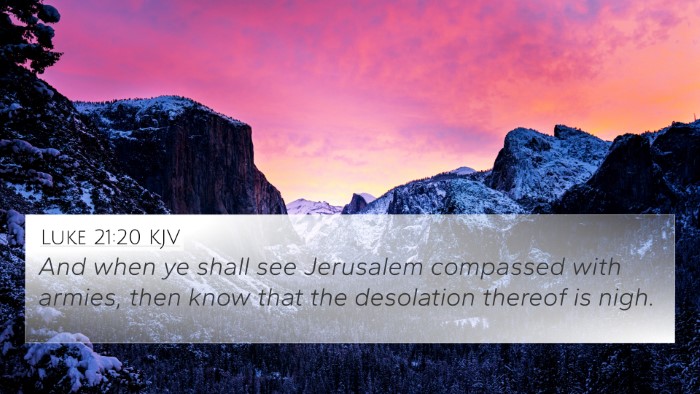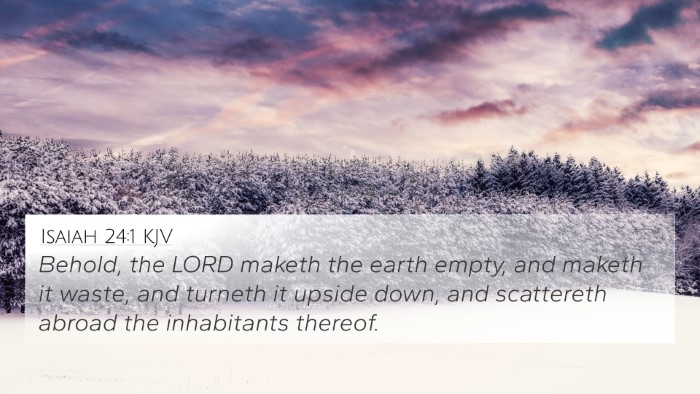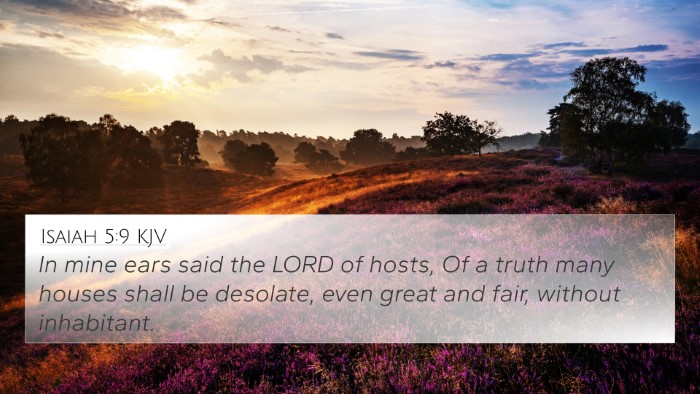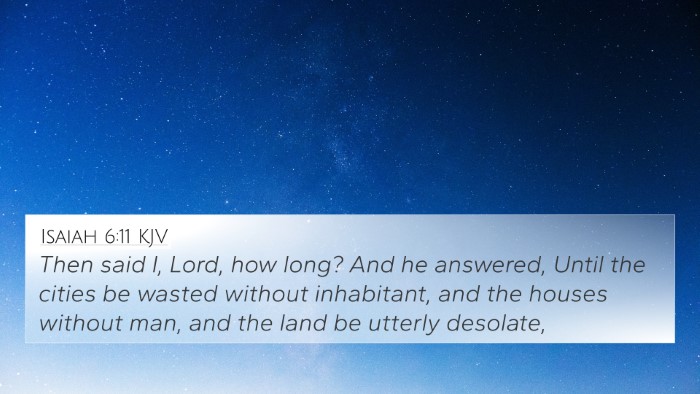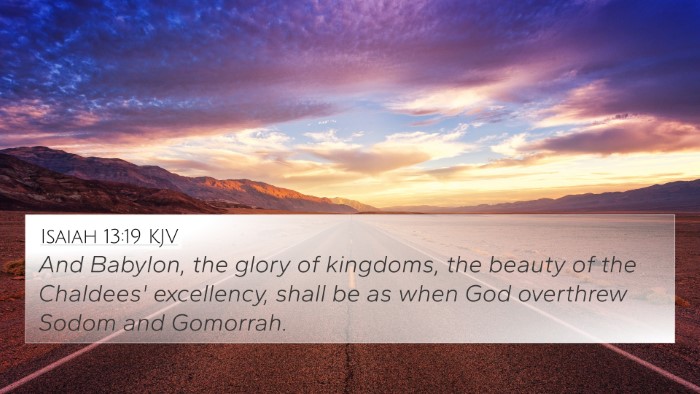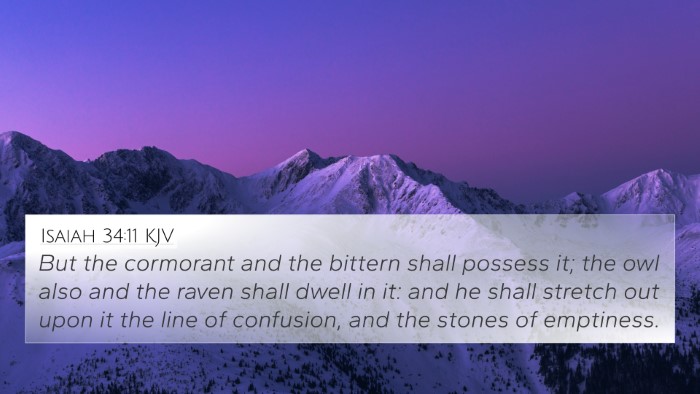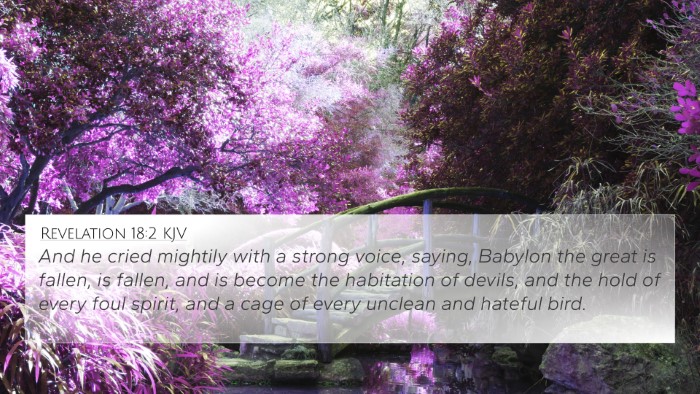Understanding Isaiah 32:14
Isaiah 32:14 states:
“For the palace will be forsaken, the populous city deserted; the citadel and the watchtower will become caves forever, the joy of wild donkeys, a pasture for flocks.”
This verse reflects a dire and bleak picture of a city that had once been proud and prosperous, now reduced to ruins. The prophet Isaiah foresees the destruction and desolation that is to come due to the people's failure to heed God's warnings.
Contextual Background
In Isaiah's time, the nation of Judah faced various challenges, including threats from foreign nations and internal moral decay. This passage comes in the context of prophetic warnings about judgment and the consequences of sin.
Commentary Insights
-
Matthew Henry’s Commentary:
Henry emphasizes the forsaking of the palace and its associated consequences. He highlights that this abandonment serves as a symbol of God withdrawing His protection and favor from a proud and unrepentant nation.
-
Albert Barnes’ Notes:
Barnes points out the literal fulfillment of these prophecies in the historical context of Judah's turmoil. He notes that these images of desolation serve as a warning not only to the people of Isaiah’s time but also to future generations regarding the consequences of forsaking God.
-
Adam Clarke’s Commentary:
Clarke provides a theological perspective, indicating that the utter desolation depicted in this verse points toward a deeper spiritual abandonment by God due to pervasive sin. He likens this to the eventual fate of those who choose to forsake divine guidance.
Thematic Connections
This verse reflects several key themes that run throughout the Bible:
- The consequences of sin.
- The importance of divine guidance.
- The transience of temporal power.
- The impact of national morality on societal stability.
Cross-References for Isaiah 32:14
Understanding Isaiah 32:14 can be enriched by considering the following cross-references:
- Jeremiah 4:27-28 - Similar themes of desolation as judgment.
- Lamentations 1:1-2 - Echoes of ruins and loneliness of a once-great city.
- Micah 3:12 - Prophecy concerning the destruction of Jerusalem.
- Matthew 23:37-38 - Jesus weeping over Jerusalem's impending judgment.
- Hebrews 12:25-29 - A warning about refusing God's voice which shakes the earth and leads to desolation.
- Revelation 18:2 - The fall of Babylon as symbolic of judgment upon those who turn from God.
- Isaiah 1:7-8 - God’s judgment depicted through the ruin of the land due to rebellion.
Importance of Cross-Referencing
Cross-referencing the Bible provides deeper insights into themes and warnings present throughout scripture. Here’s how one might see connections between various Biblical texts:
- Tools for Bible cross-referencing: Utilizing a Bible concordance or a cross-reference Bible study tool can help uncover thematic links.
- Understanding biblical themes: By identifying connections between Old and New Testament scriptures, we grasp God's consistent message throughout history.
- Scriptural dialogues: Cross-referencing allows us to see how prophets, apostles, and Jesus address similar issues, revealing a cohesive narrative that guides believers today.
Conclusion
Isaiah 32:14 serves as a potent reminder of the consequences of straying from God. The insights provided through public domain commentaries clarify the verse's significance and its application beyond its immediate context. By employing tools for Bible cross-referencing, readers can uncover rich connections and gain a fuller understanding of Scripture.
